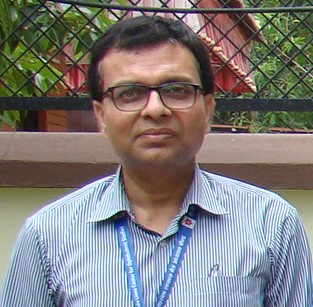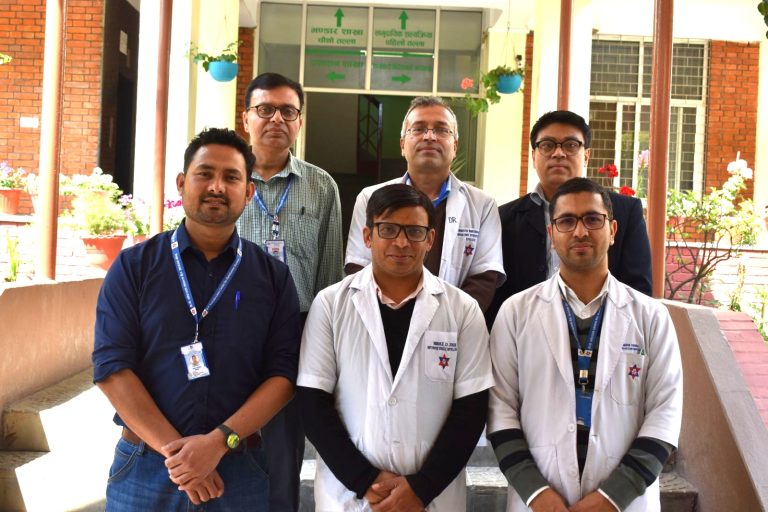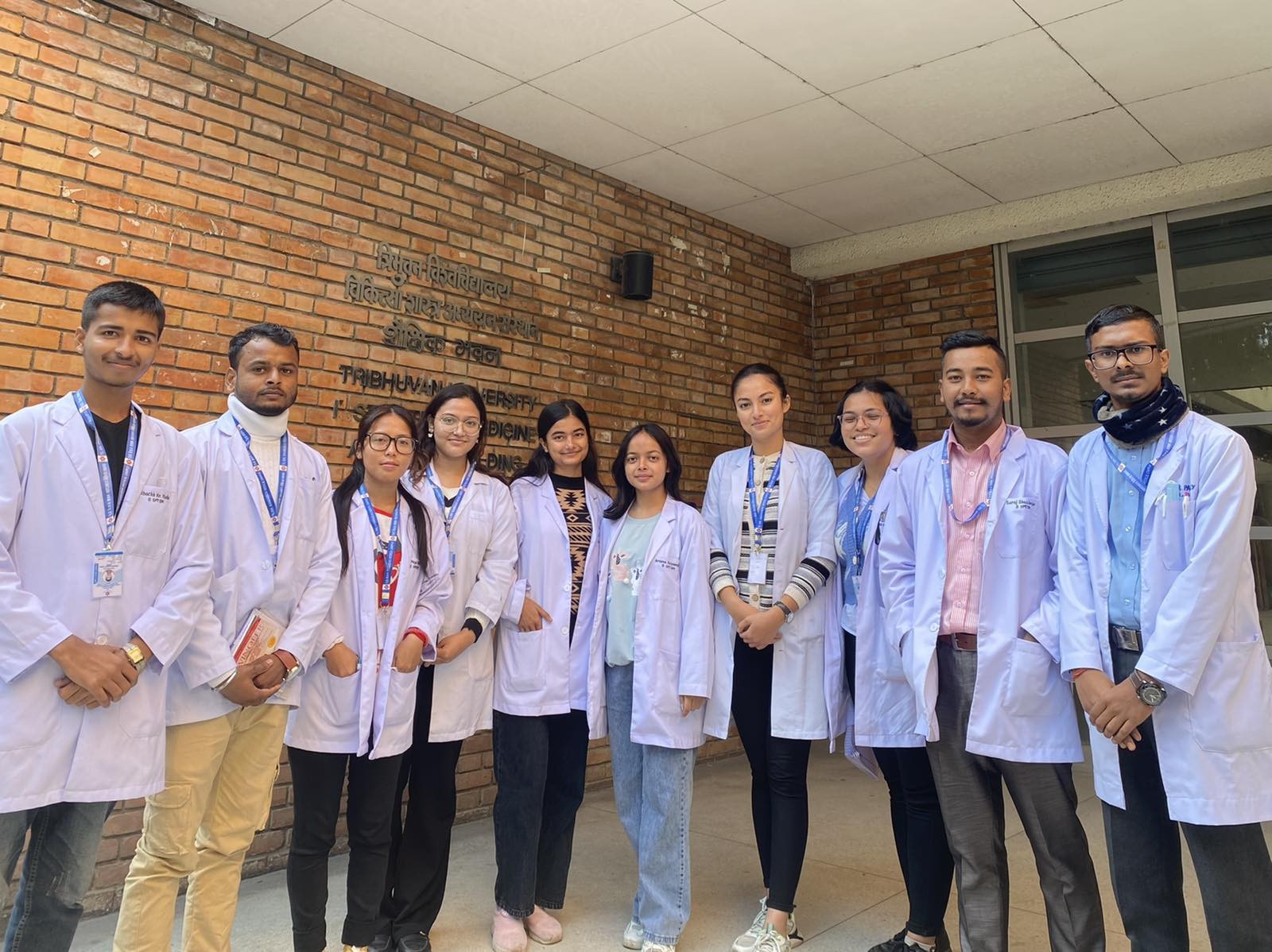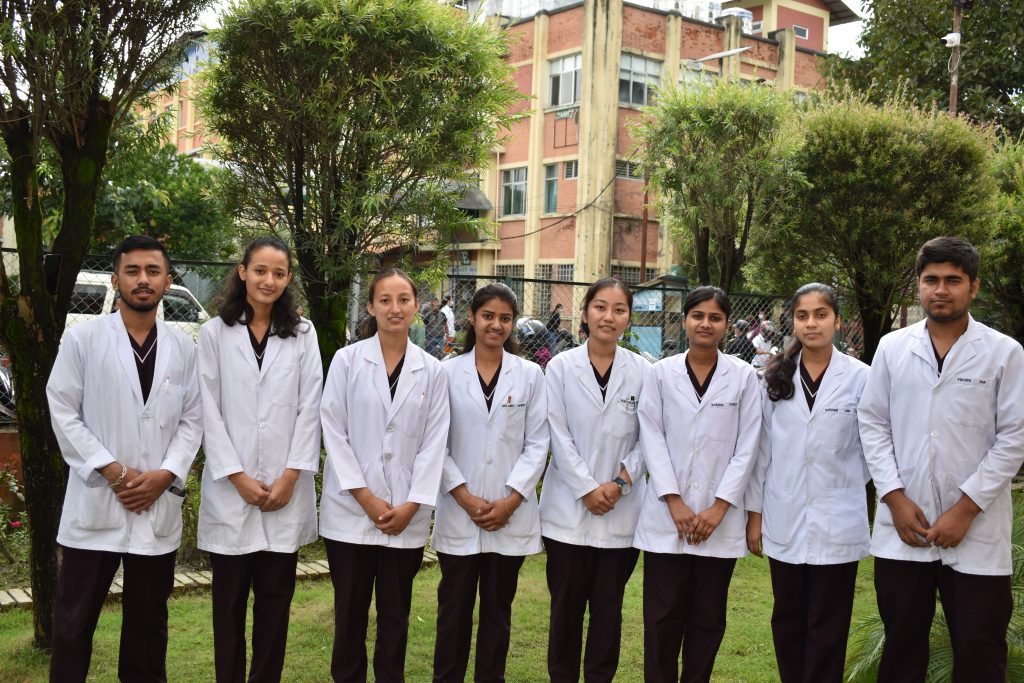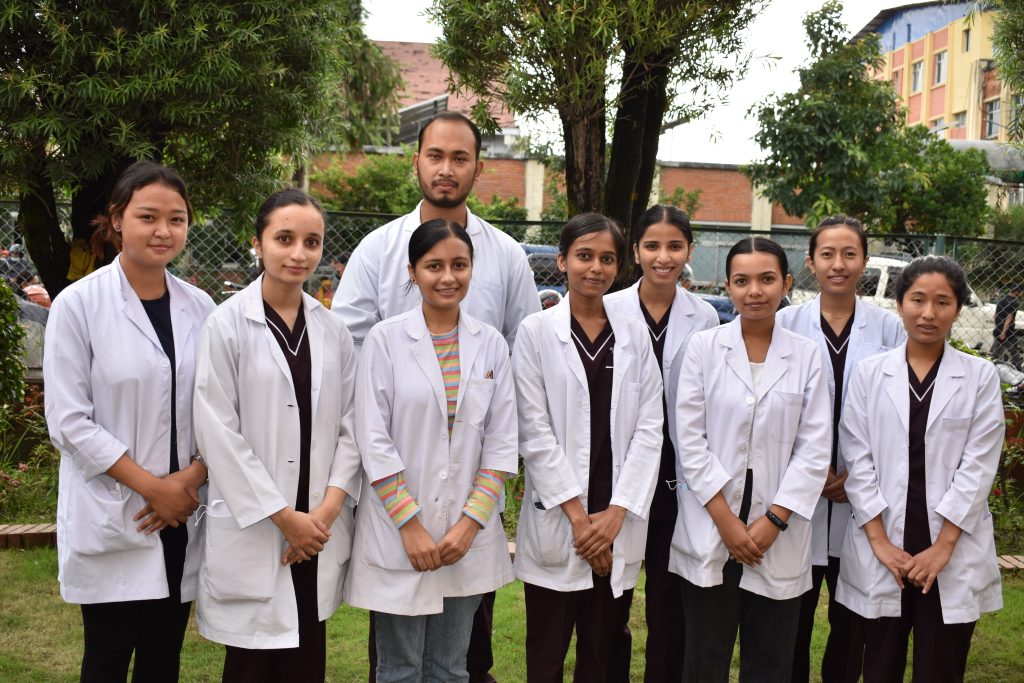B.Optometry Program
Bachelor of Optometry program in Nepal started in 1998 in collaboration with the University of Auckland. Initially started as three academic years, the Optometry curriculum was revised to four academic years in 2002 to meet international standards. Student intake has been adjusted to 10 per year since 2015 to meet national demand of Optometrists.The majority of clinical training (supervision and teaching) is provided at B.P. Koirala Lions Centre for Ophthalmic Studies in Maharajgunj Medical Campus, under Tribhuvan University. Until recently (2018), this was the only Optometry institute in the country. The high rate of patient flow, the state of the art medical and surgical technology and highly skilled supervision team consisting of sub-specialist consultants in Optometry and Ophthalmology, help students to train on comprehensive aspects of evidence based practice, effective communication, medical ethics, empathy and research.
Optometry students are taught by Optometry and Ophthalmology faculty members via lectures and practical demonstrations. In the clinics, senior Ophthalmologists train students on various aspects of ocular diseases and pathology and senior Optometrists train students in various aspects of optical science, contact lens practice, vision correction, and visual rehabilitation.
In the fourth year, students also do one month peripheral posting in Eye hospital outside the Kathmandu Valley. In the peripheral posting Students get exposure in low vision management, contact lens assessment, Ophthalmic dispensing, Biometry, Different Ophthalmic investigations, general screening of the patients and observation of cataract surgery in the operation theatre.
Final year Students also go for a 4-weeks long community health Diagnosis (CHD) outside the valley with the constant support of Maharajgunj Medical Campus and Department of Community Medicine. They organise a general eye screening camp in which they screen ocular diseases of the general population and refer them appropriately to the hospitals for a proper care. Students also participate in medical and surgical camps in remote districts in the third and fourth year where eye health services are limited. They perform visual acuity assessment, slit lamp examination, ophthalmoscopy, retinoscopy, subjective refraction, keratometry, biometry and low vision assessment in such screening camps.
Students also participate in clinical case presentation and discussion, which are conducted twice weekly in a seminar hall. Ophthalmology and Optometry faculty members facilitate these discussions. Optometry students also have to compulsorily participate in the journal clubs and national Ophthalmology/Optometry symposiums and conferences. They are also encouraged to participate and attend one of the international conferences during their Optometry training.
The general Optometry clinic at BPKLCOS is a dedicated clinic for teaching learning activities of Optometry students. This clinic is equipped with modern slit lamps (Haag Strait) with accessories such as teaching scope and applanation tonometer.
Optometry students are posted in Ophthalmic Dispensing Unit where they involved in frame selection, glass selection, cutting /edging, fitting and dispensing. They are also involved in Contact Lens clinic where they dispense different types of Soft Contact Lens and get trained from speciality Contact lens like RGP, Rose-K, Corneo-Scleral lens under the supervision of Optometry Faculty. They are also involved in Low vision clinic where they assess, manage and dispense the subjects under the supervision of Optometry faculty.
